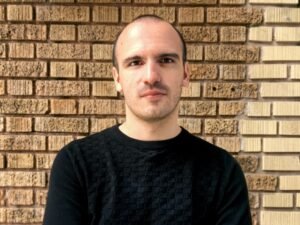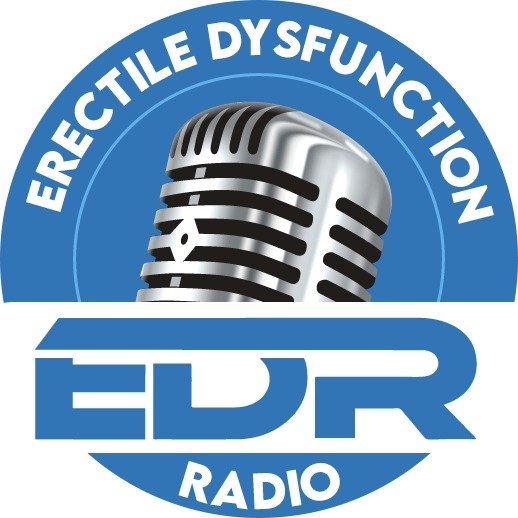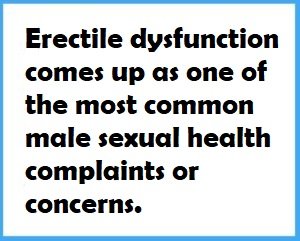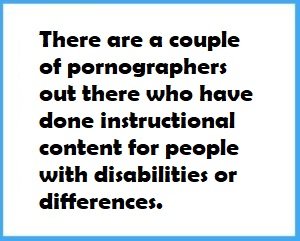
Listen to An Interview with Sexual Health Journalist Mark Hay through the podcast player above.
Erectile Dysfunction Radio Podcast
Journalist and writer Mark Hay joins us for today’s episode. Mark discusses what he’s learned during a unique career covering stories about sexual health and sexuality for major publications over the years. Mark has covered a variety of sexual topics including erectile dysfunction. He’s written for Vice, Men’s Health, Playboy, Slate, and Vox.
The Erectile Dysfunction Radio Podcast is dedicated to educating and empowering men to address erectile dysfunction, improve confidence, and enhance the satisfaction in their relationships. This podcast is hosted by Mark Goldberg, LCMFT, CST. Mark is a certified sex therapist.
Transcript of Episode 39 – An Interview with Sexual Health Journalist Mark Hay

Mark Goldberg: Welcome to another episode. Today we are joined by Mark Hay. Mark is a freelance writer and editor, he has covered men’s health issues and human sexuality for publications including Vice, Men’s Health Magazine, Playboy and Slate, just to name a few.
Mark has a tremendous amount of experience interacting and talking with people who are facing sexual challenges, and has spent a large portion of his career writing about some of the most sensitive and vulnerable topics. We are glad to have him on the podcast to share about his experiences, what he has learned, and how that can help our listeners get closer toward the sexual outcomes they want. Thank you, Mark, for joining us.
Mark Hay: Well, thanks for having me, Mark.
Mark Goldberg: Can you tell us about your career and specifically how you became involved in men’s health and sexual health.
Mark Hay: I’m not going to lie, it was actually very accidental, this wasn’t necessarily what I set out to do when I started reporting or writing, but I suppose it really started back when I was doing student journalism in college. I had also gotten involved with some sexual health organizations at the time in a very peripheral way, was very interested in expanding what had been a very limited sex education when I was growing up.
I wrote a few stories for the student papers about the professor who studied pornography or the student organization that was trying to spread sex toy education. When I started my actual writing career, then that moved into an awareness on editors that I was willing to write about this sort of thing, and I think it started with maybe a little under a decade ago, and writing about the increase in heterosexual anal sex, and it just sort of snowballed from there with “Okay, that performs well. Okay, people are interested in this. Let’s go deeper into this.”
“I’m interested in it as well. Let’s explore, let’s do more.”
Things snowball when you get your foothold into a certain coverage area, as long as you’re not squeamish and I am definitely not squeamish. You just go further and further and further.
Mark Goldberg: Now, you cover topics in the areas of sex, porn and relationships, are there specific topics that are of interest to you? And what areas seem to be of interest to men?
Mark Hay: Areas that are of interest to men, that’s a broad question, because it really depends on which population of men we’re talking about. Right? My personal pet peeve is that a lot of coverage seems to be devoted towards the stereotypical, and there’s nothing wrong with this, from a certain perspective, but it seems to be devoted towards the very stereotypical heterosexual white man in America.
And that makes sense, that’s a pretty common media demographic. That’s who a lot of editors feel they are speaking to because that’s who’s engaging with a lot of people.

I try to make sure that I’m creating content that’s going to speak to a wider variety of men, men who are not cis, men who are not heterosexual, men who are not white, because I’m just interested in covering the angles of the subjects that go a little bit beyond what I’ve seen in men’s health publications for years and years and years.
Mark Goldberg: In covering such a wide range of human sexual expression, has this changed or shaped you in any way over the past decade or so?
Mark Hay: I think that there is the perception that if you write about sex and sexuality, you’re going to have a wild, free-wheeling sex life yourself, or be in some way deeply changed or informed by it.
I can’t say that it’s really radically altered my own life, but it has turned me into the guy who you go out to dinner with, and you mentioned one thing, and I’m immediately like, you know X, Y, Z. I now spout sexual fun facts, and it’s not necessarily the greatest thing, depending on which part of the country or which dinner table you’re at.
Mark Goldberg: And I can appreciate that as a sex therapist myself, being that guy, and having to be careful about what I say or where I say it.
Mark Hay: Have you gotten good at the art of getting a call in public from somebody who starts talking to you on the other end of the line about something really intently, just like sexual mechanics, and then in real time in your head, trying to work on that art of “How do I respond to this in a way that is meaningful, but is also not going to just turn every head in this cafe?”
Mark Goldberg: Mark. I’m smiling as I’m hearing that question. As a general policy that I’ve developed for myself, I do not pick up my phone in public for exactly the reasons that you are describing, there have been a couple of times where it was necessary… where I’d not have a choice, I had to pick up the phone.
I try to be as accurate and as helpful if it’s somebody that I’m working with without being too obvious, but generally speaking, for exactly the reasons that you are describing, I do keep it as a policy, generally speaking, to not pick up the phone if I’m in a public setting or cannot get to a private area to have that conversation.
Mark Hay: That’s a good policy. I wish I could adhere to it. Just the nature of the job means that I have to pick up whenever.
Mark Goldberg: Yes, I completely understand that. Mark, you have a series of articles about how people have overcome challenges to achieve a satisfying sex life, can you share about what you have learned about resiliency and adaptation?
Mark Hay: Yeah, it’s actually interesting that you should phrase it like that because we explicitly set up when we were creating that series, the editor’s at Vice and myself, to not use the word overcoming challenges because that sort of implies, the way I think about it, having different differences, physical differences, and trying to overcome them by going back towards some sort of norm or some sort of center.
The way that I think about it is not how these people overcome challenges, and I guess I should say I count myself amongst them because I also have a couple of disabilities that affect how I have sex or any other form of physical intimacy, it’s not how… i’s overcome, but how it’s navigated for how sex looks for people who have non-normative bodies, if that makes sense? Or minds.

I think that there is a general challenge to achieve a satisfying sexual relationship and sexual experience, and I’m wondering if there’s anything in particular about the challenges of working toward sexual satisfaction that you have learned about how people do that?
Mark Hay: There is so much variation in the specific effects that any given mental or physical condition or disability is going to have on somebody’s sex life, that to some degree, this is all incredibly idiosyncratic, but the one thing that is unifying across the board is the hit that people take to their libido, to their drive in general, just because of the stigma that’s leveled against anybody with a difference.
And the self-consciousness that creates as well. I think the thing that has struck me is just how that is sort of the universal experience. Not in every interview that I do for that series, but the universal experience of the vast majority of people with any kind of difference are going to have is just that barrier of how is somebody else looking at me, how in my own head am I about this difference? And how does that limit my ability to either feel sexual, have sex or get out of my own head when I’m having sex.
So we’ve put a tag line on that series, which is a series about sex and stigma, or I think that’s the current phrasing of the tagline, I’d have to check. That really is it how so much of this is just about stigma and how we navigate it more than any other physical challenge or mental challenge specifically.
Mark Goldberg: So if I’m understanding you correctly, you’re saying the impact that self-concept, self-esteem, men getting trapped in their own heads, or really for that matter in the series, anybody getting trapped in their own head when it comes to the impact that it has on libido being able to be present, being able to engage in pleasurable activities… is that correct?
Mark Hay: Yeah, well, because to take, for example, spinal cord injuries, anywhere you receive an injury on the spine, no two spinal cord injuries are going to be the same in terms of the pure hydraulic, mechanical effects on sex, if you have an injury at the same vertebrate, depending on the nature of that injury, the exact level of damage, the extent of damage that’s going to lead to very different manifestations for the level of sensation that you have in your genitals.
The level of function that you have in your genital, your ability to use your arms and legs within sex, there’s a lot of variation on how to adapt to that.
But I’ve never talked to somebody who’s acquired a spinal cord injury who doesn’t immediately and seriously have to grapple with how is anyone ever going to find me sexual because I have never seen somebody in the media or had exposure in general society to somebody who looks like me or functions like me now, who is sexual or sexualizable, so it’s not just self-conception, but awareness of the lack of sexualization of people in the same situation.
Awareness of the fact that there is this de-sexualization of people with differences that just impacts this idea, if that makes sense?
Mark Goldberg: Yes, in other words, if I’m understanding you correctly, the interplay between what society puts out there, how people are represented or not represented, and how that impacts a person’s sense of self and sense of being able to have a sexual self when they no longer fit what seems to be the paradigmatic version of sexualization is that it?

You can go in there and find some useful nuts and bolts information and two, it’s just to create some visibility around people with these conditions who actual sexual beings and who are having full…not necessarily flawless sex lives, there are a lot of people in that series who are still figuring things out and still struggling.
I want to make sure that that perspective is represented to in the series. You don’t have to be okay, you can still be figuring things out at any stage in life, but just to give an honest and open representation of sexuality with differences when that representation is so lacking in the rest of our culture.
Mark Goldberg: Can you share a little bit about the role that a sexual partner may play into all of this?
Mark Hay: There’s a huge part, if you already have a sexual partner and you acquire a difference later in life, if you acquire a spinal cord injury, of just that intense fear of, Oh God, is this going to destroy my relationship, God, what will my partner think?
And it does impose, in some ways, upon a partner to have to change their sex life, change the way they have sex, but the way a partner reacts, either an established partner or a new partner is usually a world of difference in that psychological aspect of things. Is usually a world of difference in just the core conception of, am I able to see myself as a sexual being… is a partner willing to still see you as sexualizeable and as a sexual prospect, that can just be the on and off switch for some people, sexuality.
Mark Goldberg: Completely. And this is something that we encounter and have covered to an extent when it comes to when a man’s experiencing even erectile dysfunction, how the partner reacts, whether he or she is willing to work with their partner, whether they internalize this, all of these things make a tremendous difference in terms of how these couples work together and whether they can pivot toward re-sexualzing or shifting their paradigm of sexuality in their relationship.
Mark Hay: Yeah, and that does take… fundamentally, it’s all about communication, communicating, one, that you do still find your partner or you find this new partner attractive in some way, in any way, and that there is a sexual desire there or willingness to explore sexuality, and then communication about what is and isn’t working in a way that’s non-stigmatizing.
In a way that’s just, Hey, let’s try X or ABC isn’t working, let’s try X, Y, Z, communication that is open and honest. And just doesn’t have any negative emotional valence to it, it makes the world of difference for most people.
Mark Goldberg: It does, and we also recognize that it is oftentimes hard to achieve, certainly if couples have ingrained patterns of communication or ingrained patterns of lack of communication around topics of sexuality, it can be challenging to get there.
But I am absolutely in full agreement, Mark that establishing that communication or utilizing established communication to be able to advance the sexual relationship, allow it to pivot and to discuss the things they need to be discussed is really crucial.

Mark Hay: Oh, absolutely. Erectile dysfunction comes up as one of the most common male sexual health complaints or concerns. It comes up in pretty much any article you do on men’s sexuality to some degree, even when you’re reporting on the social effects of pornography, there’s that common concern about, “Oh, does porn consumption lead to erectile dysfunction?”
Yeah, it crops up in pretty much any article where you’re talking to somebody with a penis, I think. The thing that has struck me, maybe not necessarily, it’s not as if I’m in a position to discover some grand new world shaking insight about erectile dysfunction.
But the thing that strikes me when I talk to people is just that obsession that we place on erections and erectile dysfunction, which isn’t to say that they’re unimportant, but I just keep coming back as I report on this over the years, to the idea that putting so much of a focus on it, and being so distraught when it happens, it’s a good part of why it happens and why it keeps happening for some people… if that makes sense?
Mark Goldberg: Makes total sense. And it’s something that we talk about and we write about extensively on this podcast and on our website, that negative feedback loop, how men get themselves caught in it, and some of that absolutely has to do with the emphasis that is placed on the importance of an erection, the role of the erection.
Erectile dysfunction and other sexual topics can be very vulnerable to discuss. In your efforts to report and cover these topics, has this been a challenge? Do you find that men are looking to share about their experiences or are hesitant with shame and embarrassment?
Mark Hay: People who have been through the ringer are usually a little more open to talking, in my experience. You’ve gone through hell in a handbasket, come out on the other side, you usually have had those walls stripped down in the process and you’re just fewer concerns or qualms about just speaking openly about it.
And usually a willingness to share experiences because you know other people will through that and you want to share what you’ve learned. Talking to people, if you are in the middle of navigating an issue can sometimes be a bit harder because we do have so many walls up, just in traditional heterosexual male sexuality in America, so many walls up around discussing anything that is distressing or emotional, especially with somebody you don’t know super well.
And I find that quite often when I interview people who are in the midst of navigating an acquired difference, like a spinal cord injury or something like that, that it can be very difficult for people to speak, but often they want to. They want to speak about it, it’s just they don’t have the tool box or the space to talk about it, and so it’s really just with those people trying to make it very clear that I’m creating a space where they can speak freely and without concern, and I’m not going to judge them. I’m not going to try to fix them or anything like that, I’m just here to listen.
Mark Goldberg: You mentioned earlier about pornography, and I do appreciate your take on that, it is a controversial topic, and one that we get a lot of questions about, I would be interested to hear your take on the impact of porn in particular on men’s sexuality and the mind.

It’s really hard to design an experiment to test the effects of pornography, because how do you go about finding a control population? How do you go about finding people who haven’t already been exposed to pornography in this world? That’s very difficult, and you’re probably going to find a very, very selective sample of people who haven’t.
And then how do you actually go about measuring the impacts, because we know that people will even lie on anonymous surveys about this, they don’t want to tell you how much they view, they have very skewed senses about how it is going to impact them, this is just so hard to study.
But my takeaway just anecdotally is that the way that pornography affects you is more about what you take into your interaction with it than what you get out of it. If you go in thinking, this is an educational tool, this is telling me what sex really looks like, then you’re going to take bad lessons out of it because it’s just performance.
If you start to sublimate your sexuality into it because of any number of reasons as opposed to just engage with it as a form of entertainment or an aid, then that might lead to negative outcomes, there’s no… I don’t think there’s any universal about how it affects us. I think that it’s really just about your individual relationship with it as content, which is not too different from most other forms of media, to be honest.
Mark Goldberg: A lot of people are looking for a simple answer to what is causing that, and I do think that pornography often times gets scape-goated.
I think for some people, it’s going to have an impact and that really might be what the difference maker is between being able to gain and maintain an erection with a partner. I think for other people though, pornography just doesn’t have that much of a significant impact and what might be contributing to their erectile dysfunction or other sexual dysfunction is far more complex.
Mark Hay: Exactly, it’s not necessarily the material itself, it is your relationship to it personally. Which is often times more about where you are in your own sex life or emotional life than anything else.
Mark Goldberg: And we encourage men to look at that component. What is it about you? Where are you in your life? What is your relationship with pornography or with anything else that you think may be contributing?
Because as we emphasize in this podcast a lot, the mind plays a tremendous role and what is being input into the mind is of importance, but what the mind does with those inputs is of probably tremendous importance and value in terms of trying to identify and potentially make some changes to be able to achieve the sexual outcomes that you want.

Mark Goldberg: Is there more that you can share about what you have learned about the pornography industry that would be relevant?
Mark Hay: There are a lot of weird little twists and turns and fascinating stories that one can pull out of the industry, but relevant to that it’s that there are honestly some people in the industry who are very interested in trying to use it as a medium for helping people to navigate those sorts of issues.
There are people who make more expressly educational pornographic content, they still try to make it hot and sexual, but they’re trying to give people tools that they can use.
There are a couple of pornographers out there who have done instructional content for people with disabilities or differences. If you go looking beyond what is just on the front page of the tube site, if you get a little more into the indie, conscientious or the non-standard world of pornography, you can actually find some content that can actually be meaningfully helpful, depending again, on how you engage with it.
There are two different sides of the industry, and people in the industry will sometimes use the the phrase “churn and burn” to refer to companies or directors and performers who are just concerned with putting out a pure, mass of content and there’s not necessarily as much… I don’t want to say there’s not thought in because there certainly is performance that goes into it, there’s a scale of production, but churn and burn content is like, yes, let’s just pump out content.
Make the money, provide the people with what the survey says they want, and then there are people, many people who are a little more thoughtful about, what am I producing? What does it say? What does it communicate? Who am I speaking to? Why am I making it?
So there are those two sides of the industry, and it behooves us to be as intelligent about what we’re consuming in the world of pornography as we are about any other form of content that we consume. Which honestly, we’re not always good at that with our standard media diets, but we should be conscientious and informed media consumers in all aspects of our lives.
Mark Goldberg: If there was a final message that you would want to give to our listeners, what might it be?
Mark Hay: Sex is weird and wild and funky, and just embrace the fact that it shouldn’t look any one way, shouldn’t be any one thing, whatever you need to do to figure out what works best for you within the limitation of not hurting other people, and explore it with people around you, talk openly about it and find what works.
Subscribe to our Podcast
All ED Radio Podcast episodes are available on this website, Eiqmen.com. You can also find and subscribe to it for free on Apple Podcast/iTunes, Spotify and YouTube.
Ready to Learn More?
To start your in-depth approach to resolving ED, try our online learning course called BEYOND THE LITTLE BLUE PILL, The Thinking Man’s Guide to Understanding and Addressing ED.
Ready to talk to an ED expert? Erection IQ founder Mark Goldberg helps men resolve erectile dysfunction. He offers individual, one-on-one services to men throughout the world through a secure, telehealth platform. It’s 100% confidential. You can visit the Center for Intimacy, Connection and Change website to
Schedule A Consultationwith Mark.

